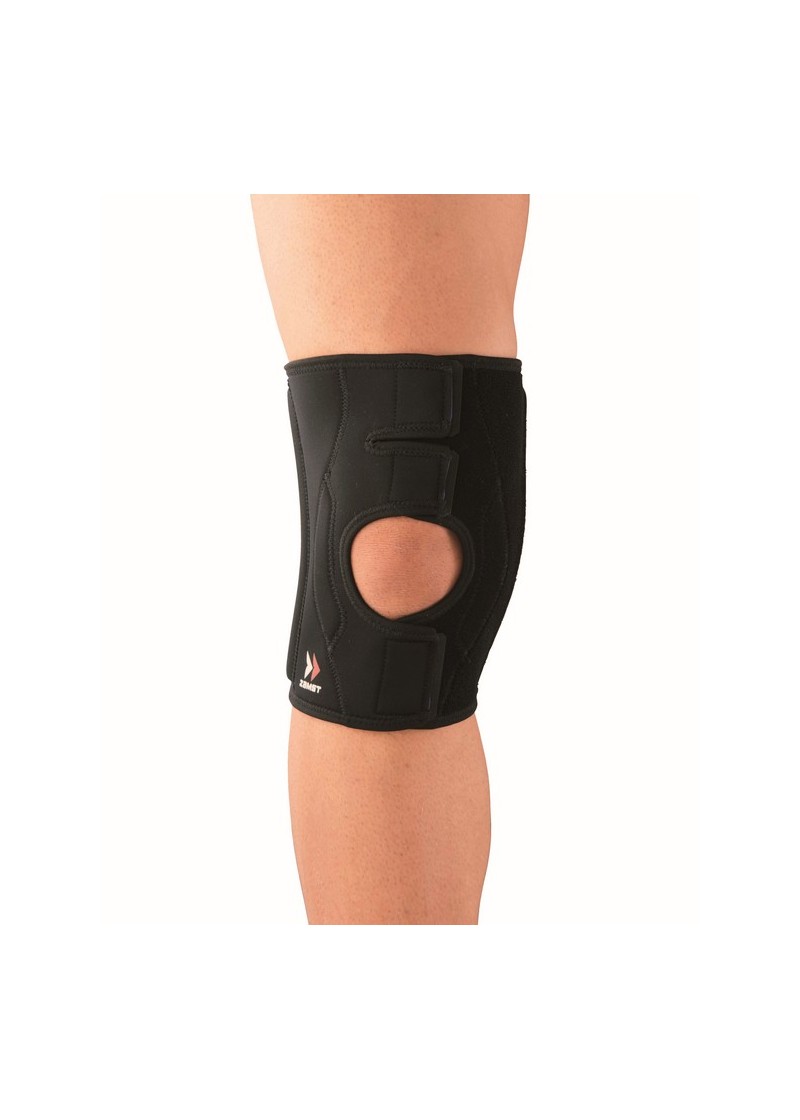







LCM and LCL collateral ligaments, patella syndromes, proprioception, stability

SECURE PAYMENTS

FREE SHIPPING FOR ORDERS OVER €25

FREE RETURNS FOR THE FIRST 30 DAYS
LCM and LCL collateral ligaments, patella syndromes, proprioception, stability
Knee brace moderate support for general stability, lateral and medial collateral ligaments, and injury prevention
EK-3 is a moderate support, balanced for stabilisation of the knee ligaments, and is ideal for athletes and sportsmen who have suffered ligament injuries or injuries (light to medium) or who want to preserve the ligamentous apparatus over time. It is characterised by the presence of dynamic progressive resin splints, which allow very fluid flexion/extension movements, stabilising the knee laterally and guiding the patella and keeping the joint on axis.
Product pluses:
- Exo-Tech exoskeleton with bi-directional hold: LCL (lateral collateral ligament), LCM (medial collateral ligament);
- Exo-Grid lateral reinforcements made of dynamic progressive resin, perfectly stabilise the joint by offering progressively more support depending on the degree of bending;
- Fully open structure that creates a superior fit in the knee with the possibility of easily adjusting the degree of compression by means of the Velcro straps and upper closure bands, preventing slipping even under intensive use;
- Stretchy, breathable material with V-Tech technology that wicks perspiration away and facilitates flexion and extension movements;
- The inclusion of silk protein on the skin side gives extremely soft characteristics, which together with the extra comfort and breathability at the back of the knee and the extra flat seams make the product extremely comfortable to wear;
TYPE OF INJURY: Light to moderate injuries to the ligamentous apparatus, patellar syndromes. Knee sprains occur when the ligaments supporting the knee are overstretched (stretched), or torn (partially or totally) due to internal or external factors. Injuries to the LCL are usually the result of lateral trauma (frequent in 'contact' sports such as football, basketball, rugby) or valgus stress (falling on skis with spread legs), but if it is the LCL that is damaged, the tibia follows the thrust and does not resist.
SYMPTOMS AND SIGNS: There are 3 degrees of injury with increasing severity: I) There is a slight stretching of the ligament fibres with the presence of pain and swelling in the knee, medial or lateral but without clinical signs of instability. II) The ligament is partially torn, with live pain, swelling and associated lateral or medial knee instability. III) The ligament is almost completely torn, with the knee showing severe instability, excessive swelling and often associated meniscal injury.
TREATMENT OF INJURIES: Approximately peripheral injuries (medial and lateral collateral ligaments) are ligamentous injuries that rarely require surgical repair because they heal completely: the product is designed for low to medium grade strains or injuries. WARNING: It is recommended to always consult your doctor for an objective examination and to make the correct diagnosis.
Composition: Nylon, Elastane, Chloroprene, Polyurethane, Acrylic